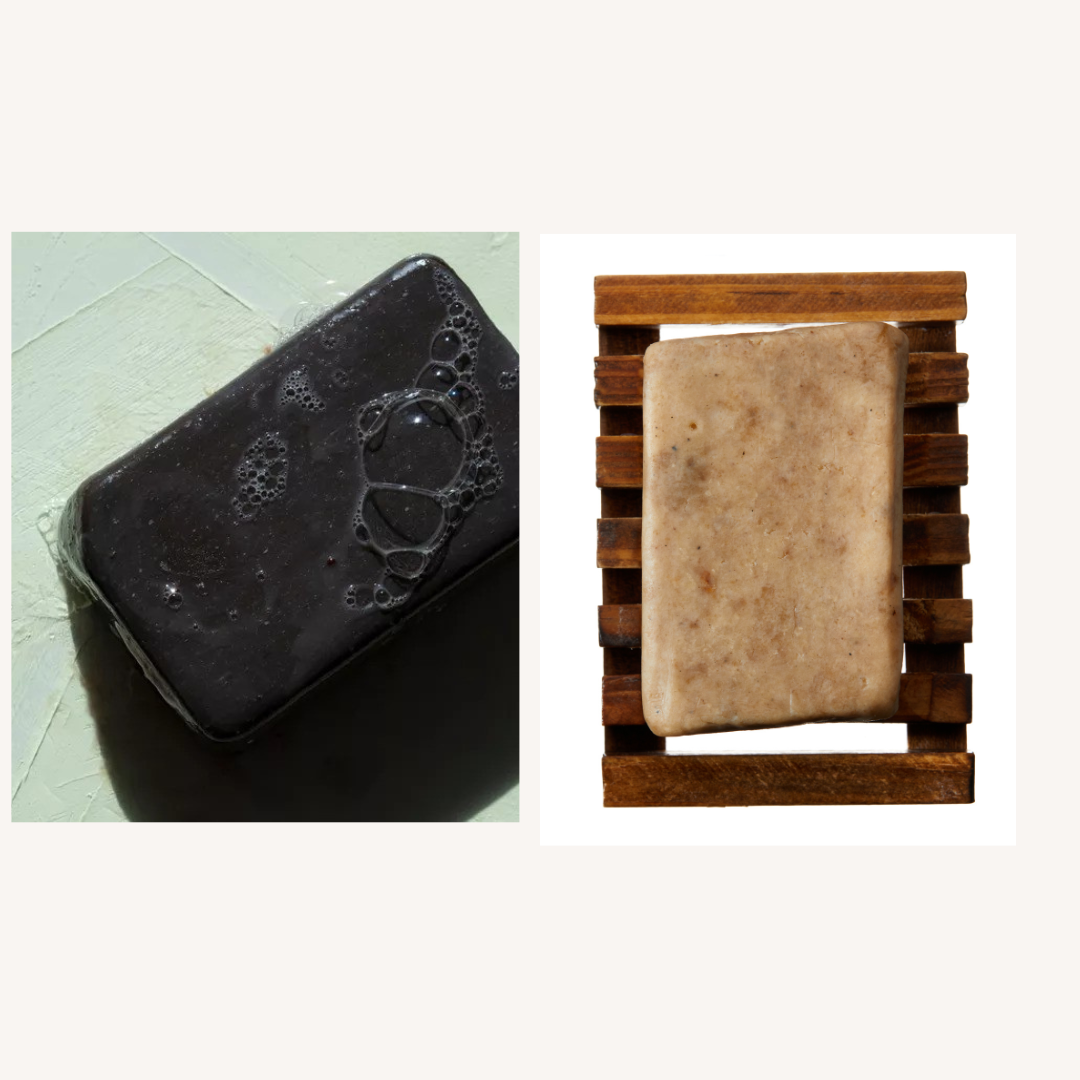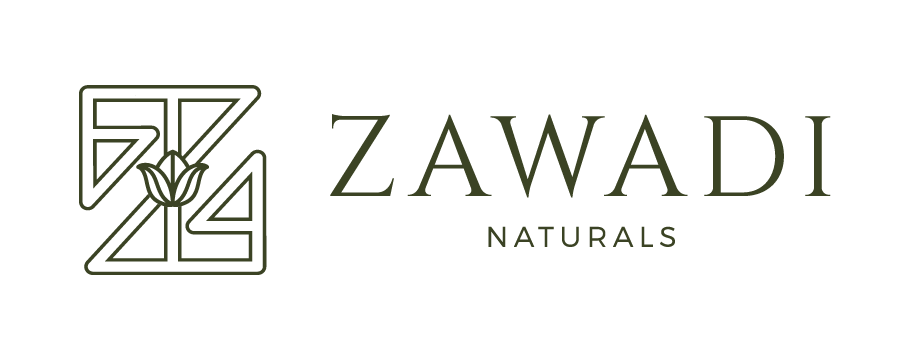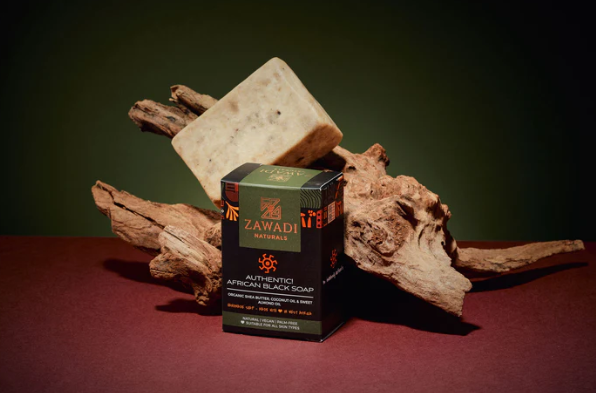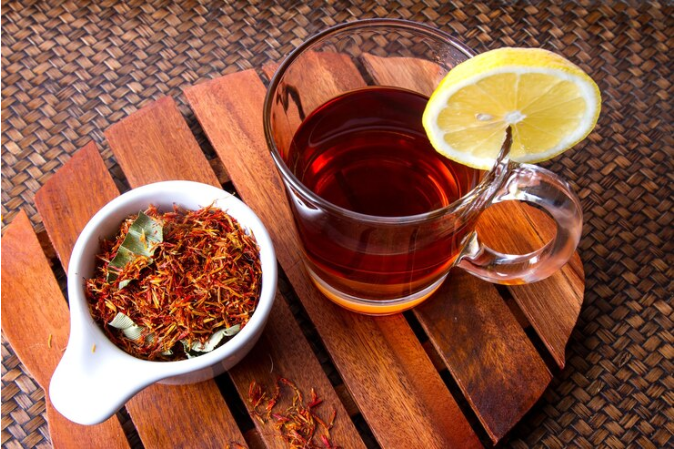
In the vibrant world of skincare, African Black Soap stands out as a time-honored treasure known for its myriad of benefits. However, with its rising popularity comes the challenge of distinguishing genuine African Black Soap from imitations. Contrary to popular belief, authentic African Black Soap isn’t black! Let's embark on a journey to uncover how to identify real African Black Soap and ensure you’re getting the genuine article.
What is African Black Soap?

African Black Soap, traditionally known as “Ose Dudu” in Yoruba or “Alata Samina” in Ghanaian, is an all-natural soap originating from West Africa. It’s crafted using age-old recipes passed down through generations, combining ingredients like cocoa pod ash, plantain skins, palm tree leaves, and shea butter.
Why Authenticity Matters
Authentic African Black Soap offers a plethora of skin benefits, from deep cleansing and exfoliation to moisturizing and soothing skin conditions like acne and eczema. Imitations, often laden with artificial ingredients and dyes, can lack these benefits and may even cause skin irritation.
How to Identify Real African Black Soap

1. Color and Appearance
Color Variations: Genuine African Black Soap ranges from light brown to dark brown, with a slightly uneven texture. It’s never completely black. If you come across a bar that is uniformly black, it’s likely been dyed, is a fake or is a regular commercial bar of soap mislabeled as African Black Soap.
Texture: Real African Black Soap has a crumbly texture with visible flecks of its natural ingredients. It should look somewhat rustic and unrefined, unlike the smooth, uniform appearance of commercial soaps.
2. Ingredients List
Natural Ingredients: Authentic African Black Soap is made from natural ingredients like cocoa pod ash, plantain skins, palm oil, shea butter, and sometimes coconut oil. Avoid soaps with long lists of synthetic ingredients, fragrances, or preservatives.
Transparency: Reputable sellers will list the ingredients clearly. If the ingredients list is vague or incomplete, be cautious.
3. Origin
West African Roots: Genuine African Black Soap is traditionally made in West African countries like Ghana, Nigeria, and Togo. Check for information about the origin of the soap and the production process.
Fair Trade and Ethical Sourcing: Many authentic African Black Soaps are produced by local women’s cooperatives. Look for fair trade certifications or statements about ethical sourcing to ensure the soap is made under fair conditions.
4. Scent
Earthy Aroma: Authentic African Black Soap has a natural, earthy scent due to its ingredients. It shouldn’t smell strongly of perfumes or chemicals. A slightly smoky or nutty aroma is typical.
5. Packaging
Label Information: Look for labels that provide detailed information about the soap’s origin, ingredients, and makers. Authentic products often highlight their traditional methods and cultural heritage.
Common Misconceptions
Not Always Black: Despite its name, authentic African Black Soap is never purely black. The name refers to the ash content from its natural ingredients, giving it a darker hue but not a jet-black color.
Unrefined Texture: The soap’s rustic and unrefined texture is a sign of its authenticity and traditional manufacturing process. A smooth, uniformly shaped bar is usually an imitation.
Where to Buy Authentic African Black Soap
Specialty Stores: Visit stores that specialize in natural or African products. They are more likely to carry authentic African Black Soap.
Online Retailers: Purchase from reputable online retailers with good reviews. Look for detailed product descriptions and information about sourcing.
Local Markets: If you have access to markets or shops that import goods directly from Africa, you can often find authentic soap there.
For a reliable source, consider purchasing from our website -
African Black Soap. We are a trusted retailer offering genuine African Black Soap crafted with traditional methods and ethical sourcing.
Final Thoughts
Navigating the world of skincare can be tricky, but with these tips, you’re well-equipped to identify genuine African Black Soap. Remember, the real deal is not black, boasts an earthy aroma, and features an unrefined texture. Embrace the authenticity of this natural soap and let it work its magic on your skin, just as it has for generations.
Ready to find the real African Black Soap? Start your journey today with
Africa Black Soap and experience the natural wonders of this legendary skincare gem.






